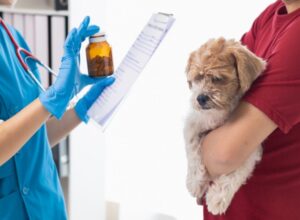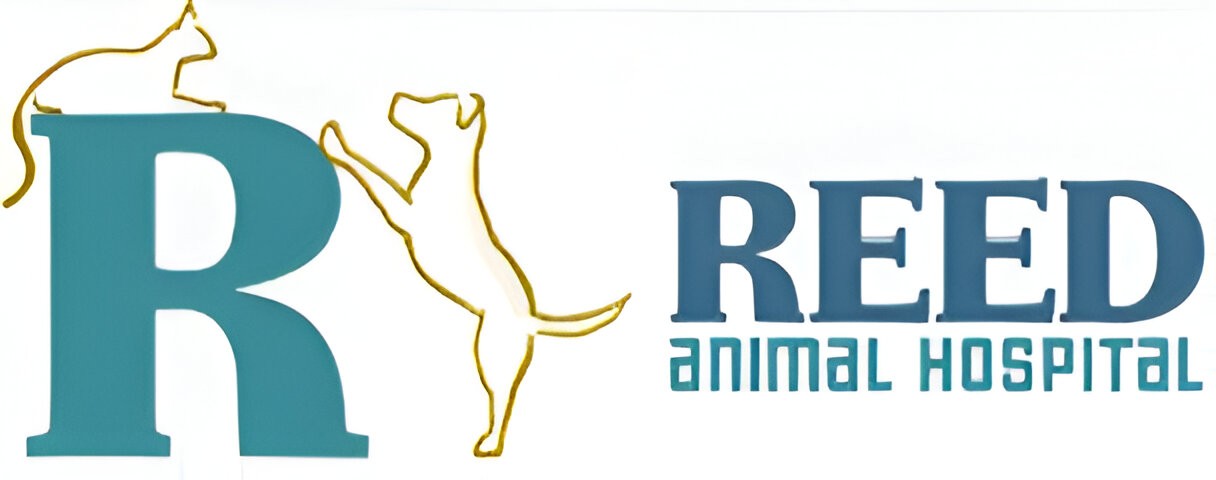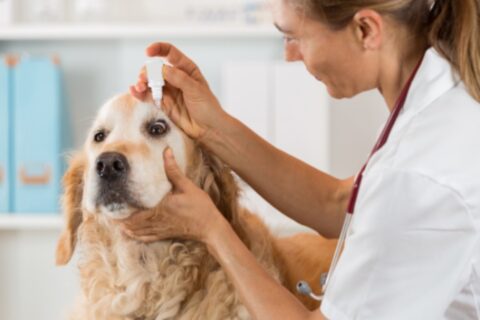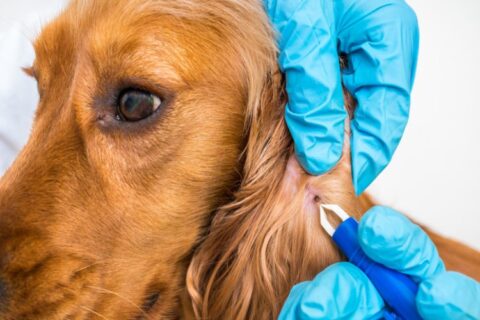Urinary Tract Infections in Dogs
Understanding Urinary Tract Infections In Dogs
Do you know how to spot the symptoms of UTI in dogs? It’s not uncommon for a dog to get a urinary tract infection (UTI), and it is very uncomfortable. UTIs happen when bacteria enter the urinary tract- the kidneys, bladder, urethra, or ureters- and UTI treatment for dogs is important to resolve the infection quickly. UTIs can happen to any dog, of any age or breed, but older dogs are more susceptible, as are certain breeds.

Common Causes Of UTIs In Dogs
What causes a dog to get a UTI? These infections can happen when a dog holds urine for too long, doesn’t drink enough water, has a weakened immune system, or poor hygiene. Other conditions, like diabetes, can also raise your dog’s risk of UTIs. Female dogs are more prone to UTIs than male dogs, because they have smaller, wider urethras. Sometimes, urinary tract abnormalities can cause UTIs, like an ectopic ureter or recessed vulva, covered by skin folds.
UTI Symptoms
Dogs that have UTIs are likely to urinate more frequently, often asking for more trips outside than usual. If your normally well-mannered dog suddenly seems to forget about house training, that could also be a sign of a UTI. One of the most common signs of UTI in a female dog is excessive genital licking, and male dogs sometimes do that too. You might notice that your dog is straining or seems distressed when urinating, and the urine may be cloudy or bloody. A dog with a urinary tract infection may seem lethargic or disinterested in food, but also may be thirstier than usual. A temperature of over 103 degrees is also an indication of infection.
Diagnosing Urinary Tract Infections
If you suspect your dog has a UTI, it is wise to seek for Emergency veterinary attention. Dog UTI treatment begins with a thorough examination, during which the vet will do a urinalysis to look for bacteria, pus, or blood in the urine. Sometimes, the vet will need to order other tests like bloodwork, ultrasounds, or x-rays to rule out other conditions, as well as to assess the extent of the UTI.
Seeking Help from the Experts at Reed Animal Hospital
We recommend that you bring your dog in immediately if you see signs of a UTI. You may be looking for a natural cure for urinary tract infection in dogs, and sometimes you can help a dog with a UTI by offering a supplement or improving his or her diet, but it is vital that you bring your pet in to make sure you have an accurate diagnosis. Sometimes, it might seem that a dog has a UTI, when it is really another condition, like bladder stones. What’s more, there have been cases of UTIs in dogs that are caused by antibiotic-resistant bacteria, and this needs to be ruled out to ensure your dog is getting the right treatment.
Treating UTIs Effectively: The Reed Animal Hospital Approach
Our team at Reed Animal Hospital treats our patients like they were our own pets, so if you bring your dog in for a UTI, you can rest assured that we will work hard to make sure we have an accurate diagnosis. After thoroughly examining your dog, we will probably prescribe an antibiotic, taking care to choose the right one and correct duration of treatment for your particular dog’s UTI. We will explain the necessary aftercare, and it is important that you follow our instructions and complete the course of antibiotics, even if your dog seems to be getting better sooner. We might also offer you advice about changing your dog’s diet, water intake, and daily routine, to prevent the infection from reoccurring. We will schedule an appointment for your pooch, so that we can make sure his or her infection is cleared, and look for signs of recurrence or chronic issues.
Reed Animal Hospital: Your Partner in Doggy UTI Care
At Reed Animal Hospital, we understand how UTIs can be frustrating for both you and your dog. Our team is dedicated to helping you find the answers you need, by treating your pets as if they were our own and providing compassionate and effective UTI treatment. Our goal is to help you and your pet enjoy a healthy, fulfilling life together, and in pursuit of that goal, our extraordinary team offers a wide range of services. We’ve got veterinarians, technicians, assistants, and receptionists, all prepared to help you and your pet, and we even offer referrals to specialty surgeons, many of whom will travel to our office to consult with your pet. For more information or to make an appointment, call us in Campbell at 408.369.1788, or in Saratoga at 408.647.2906.



